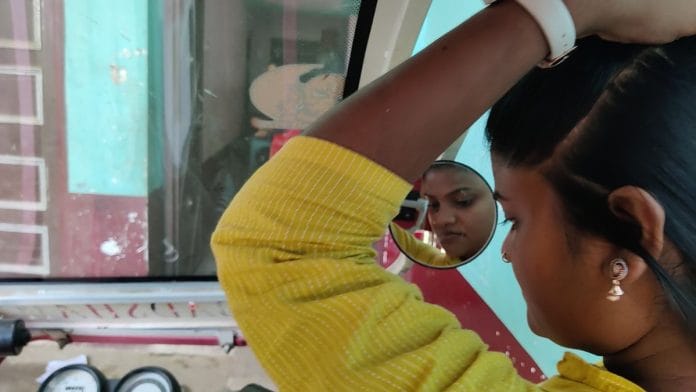Bahraich, UP: Arti from Risia village in Uttar Pradesh is back after meeting King Charles III at Buckingham Palace. The glow is already wearing off. She just can’t get her e-rickshaw in Bahraich to start. The UP-power cuts are gruelling and she can’t charge her three-wheeler.
Neighbours, local leaders and the national media have been lining up to fete Bahraich district’s first pink e-auto rickshaw driver who just won the prestigious Amal Clooney Women’s Empowerment Award. Everyone wants the 19-year-old local celebrity to drive around for their videos and Reels.
And the auto-rickshaw sits idle on the verandah. But what she will get is a street in her own name. The nameless dirt road outside her home will now be dedicated to her.
“This road will not only symbolise Arti’s success and hard work but will also inspire other village women to step out of their homes and pursue their ambitions. Every time they pass this road, it will fill them with renewed hope,” said Bahraich district magistrate Monika Rani.
For the first time in her life, Arti is enjoying her newfound freedom – and fame. Married off at 13, pregnant by 14, a single mother by 16, and now, the sole breadwinner of her family, her rickshaw and London sojourn is the stuff of feel-good movies.
She was selected for the Amal Clooney Women’s Empowerment Award for inspiring other young women through her work with the UP government’s pink e-rickshaw initiative that was launched under the Mission Shakti scheme. What followed was a whirlwind of activity—convincing her family to let her go to London, organising passports, plane tickets and interviews that culminated with high tea at the palace on 21 May.
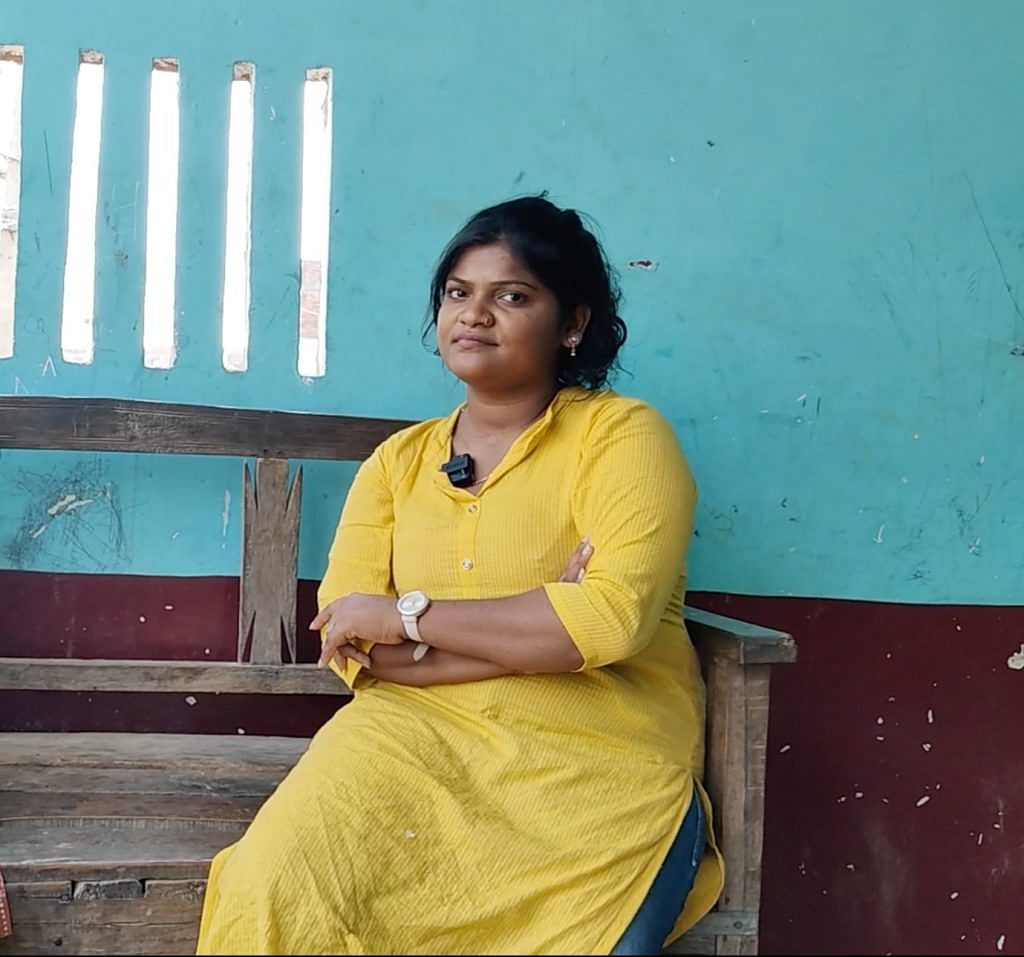
“Everything that has happened recently seems to be a dream. I never thought that I would go to London. I never even went out of UP,” said Arti, showing her certificate and award, which she keeps in an old steel box in the bedroom.
Everyone wants to know about Arti and her village. So much so that Bittu, a small shop owner on the main road of Risia block, has been doubling up as the local guide. For one week after her return on 24 May, “people in big cars” would stop outside his store asking about the “Arti who drives a pink e-rickshaw and met Charles III”. They wanted directions to her house. But Bittu doesn’t have an answer to that.
The path leading to her two-bedroom house, which Arti shares with eight people—her daughter, parents, and five siblings—waits for the promised makeover.
That first call
It was a phone call of good news about the royal award. But it created quite a stir in the household. And it wasn’t just about disbelief.
In February, she got a call from Seema Shukla, the programme coordinator of the Aga Khan Foundation, which had trained 10 women for the UP government’s e-rickshaw initiative. When Shukla told her that she had been selected to go to London and receive a royal award from the king, Arti was stunned. She didn’t know how to react to this news.
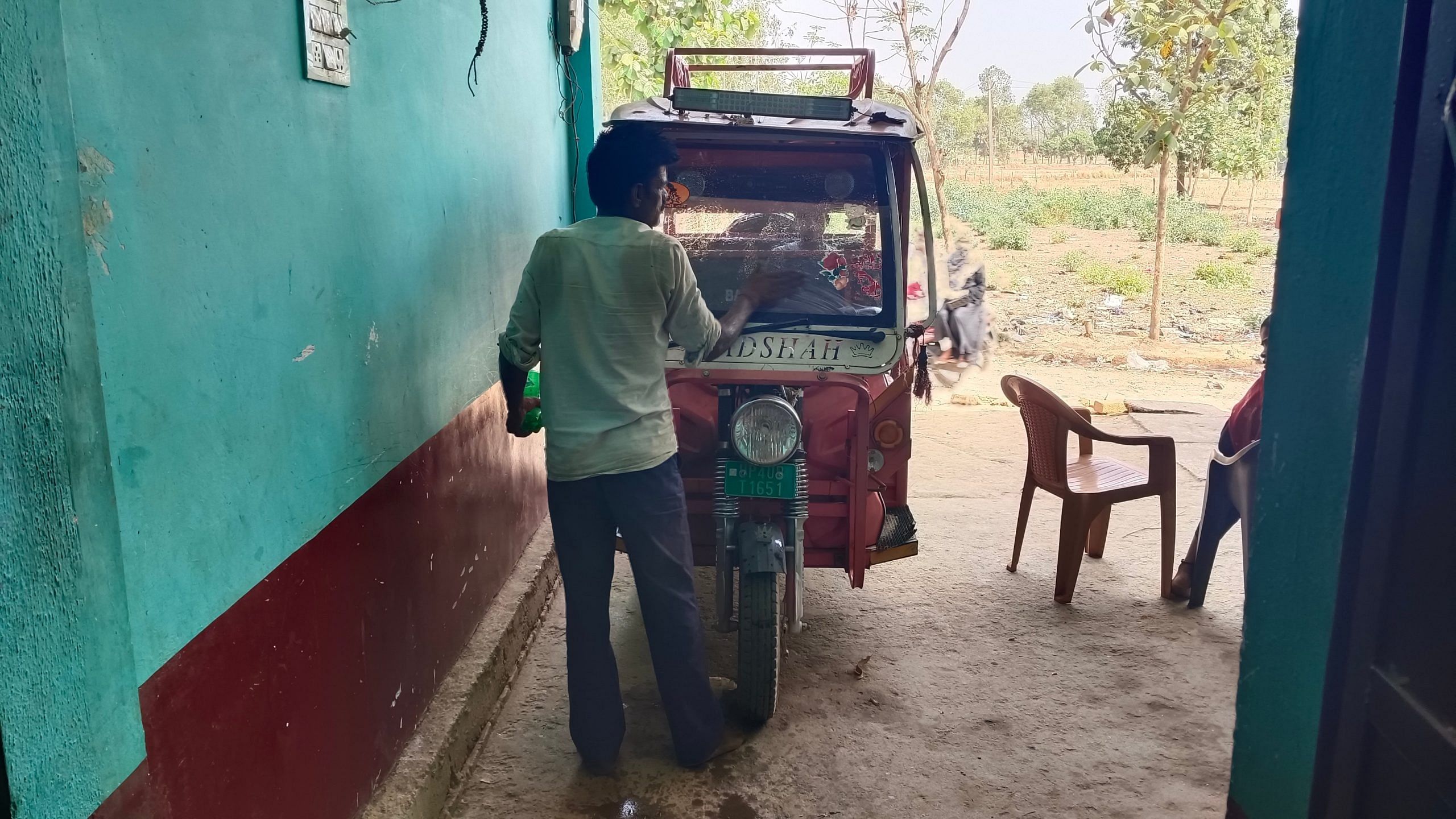
“Let me discuss this with my family and my mother, I don’t know if I can do this,” Arti recalled her response. She immediately sought out her mother, Reena Devi. London was a long way off from Bahraich.
It took an army of people to convince Reena Devi to allow her daughter to make the trip. Nobody in the family had any idea about Charles or the British monarchy. They were more worried about what people would say if their daughter suddenly left the village alone.
The road (to be dedicated to Arti) will not only symbolise her success and hard work but will also inspire other village women to step out of their homes and pursue their ambitions. Every time they pass this road, it will fill them with renewed hope – Monika Rani, District Magistrate, Bahraich
“If a girl goes out of the village even for two days, people start gossiping about it. They always assume she’s doing something wrong,” said Reena Devi, sitting on the verandah, staring at the parked auto rickshaw.
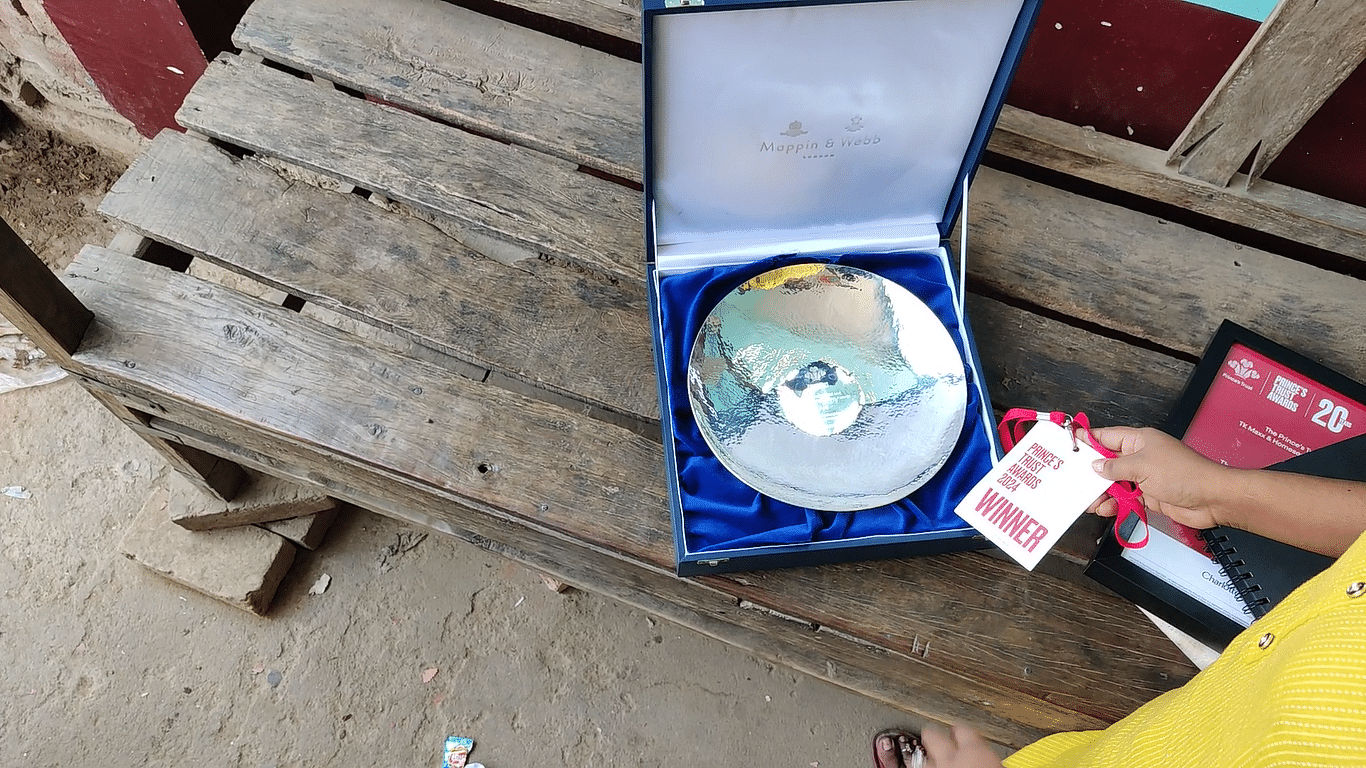
Both Shukla and the CEO of the Aga Khan Foundation took turns to convince her of the honour and the opportunity it would be. “They kept calling for two days until they convinced my mother,” said Arti.
Curious about the fuss, Arti googled ‘Royal Family’, ‘Buckingham Palace’ and ‘Charles’ on her generic smartphone.
“I saw on Google who King Charles III was. I came to know that even the Prime Minister of India cannot go to Buckingham Palace without an invitation.”
Also read: Chacha Chaudhary, Sabu do surgical strikes, capture terrorist. Indian comics are changing
How Arti got her wheels
It was Devi who pushed her daughter to become a rickshaw driver—against the wishes of nosy neighbours and male relatives. In Bahraich, women from “good families” do not leave the house to work, and not as drivers.
They were worried that she would be bullied by other drivers. And their fears were not without merit. Here, the roads were made for men.
Everything that has happened recently seems to be a dream. I never thought that I would go to London. I never even went out of UP – Arti, pink e-rickshaw driver & Amal Clooney Women’s Empowerment Award winner
Arti had to fight for space—be it at auto rickshaw queues, while getting passengers, or simply driving her three-wheeler on the road. The award has done little to make any dents in this deep-seated prejudice.
“A woman’s job is to take care of the house and do household chores, not drive a rickshaw on the road,” said Mohammad Asid, 32, who’s been driving a rickshaw in Bahraich for more than 10 years.
But Arti got her wheels with the support of government officials and the Aga Khan Foundation. In July 2023, AKF, in partnership with the Prince’s Trust, helped Arti and nine other women procure pink e-rickshaws.
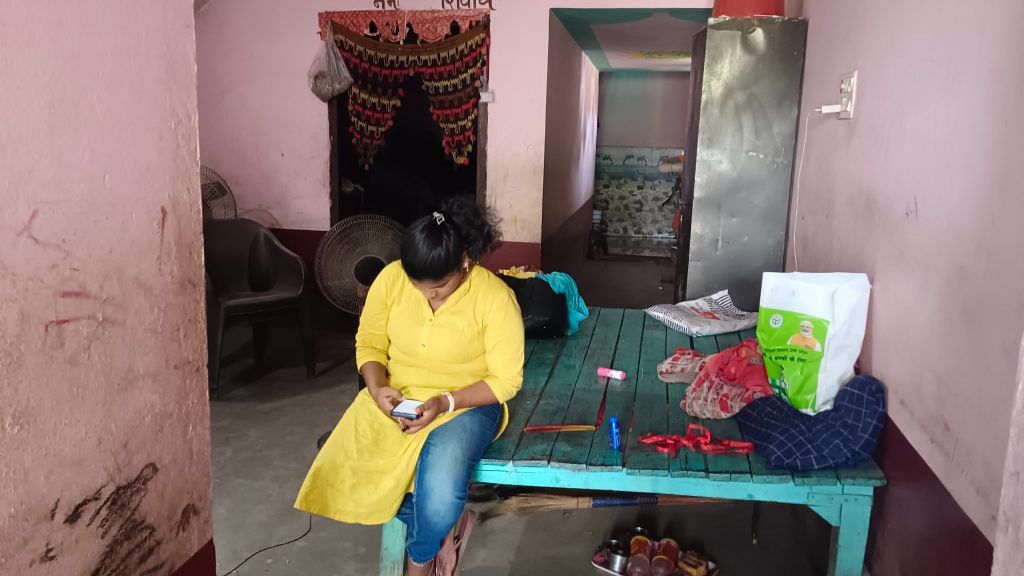
According to a Bahraich administration official who does not wish to be named, under this scheme, a loan of Rs 1.66 lakh is provided at the lowest interest rates to women beneficiaries so that they can buy e-rickshaws and become self-reliant.
After an eight-day training programme, Arti, with the help of the RTO, got her licence and then the rickshaw on 2 October 2023. Today, she earns around Rs 15,000 a month and has an EMI of Rs 4,500.
If a girl goes out of the village even for two days, people start gossiping about it. They always assume she’s doing something wrong – Reena Devi, Arti’s mother
All the 10 women rickshaw drivers have either lost their husbands or are single mothers. Arti’s marriage crumbled after two years, and she returned to her parents’ home with her baby daughter, now four years old.
Today, her income has not only improved the quality of life for her entire family but has also given her the courage to dream about her daughter’s future. Arti, who has only studied till Class VIII, wants to educate her daughter and hopes to build her own house.
“I want to build a home where my daughter and I can live happily,” she said, recalling the six days she lived in London without her daughter for the first time.
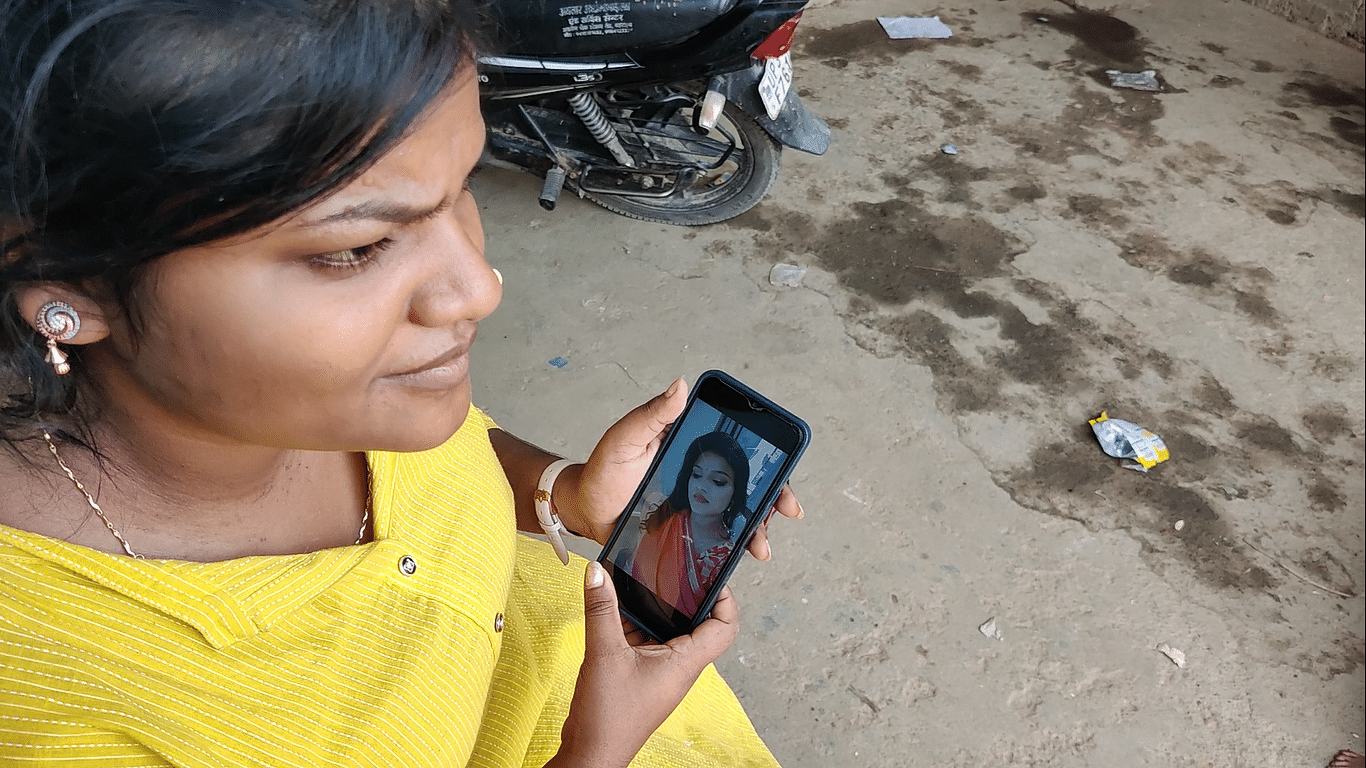
Also read:
Battling glares, taunts
Arti’s first day at ‘work’ was marked by glares—from male rickshaw drivers. It was almost as if they were waiting for the women to fail. Comments like, ‘It’s a matter of a few days, they will leave on their own,’ were common. According to some women beneficiaries, male drivers would take videos of them driving and circulate them among their friends to mock them.
“At home, we had to face taunts from our relatives and family members. Outside, male drivers initially stopped us from taking passengers. We had to return home empty-handed,” said Shiv Kumari, 30, another pink e-rickshaw driver.
At first, male drivers did not let these women park at the auto spots. They would ask them to come early in the morning to secure a space, chase away passengers and so on.
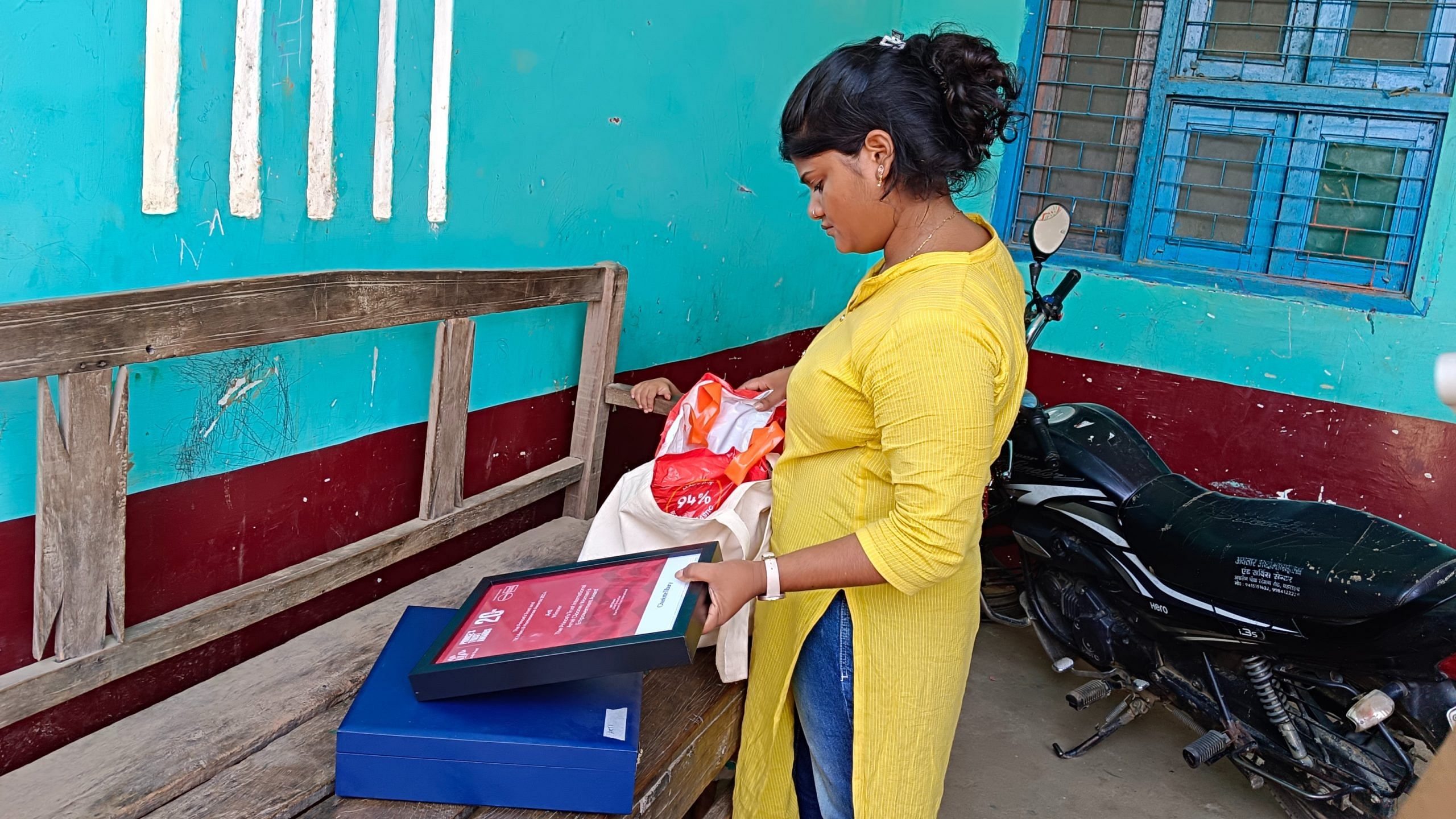
One day, when I was returning with passengers from the Bahraich bus stop, some bus drivers stopped me and forced my passengers to disembark. They told me categorically that rickshaw drivers couldn’t carry passengers from that point on,” added Kumari.
But support came from an unexpected quarter—women commuters in Bahraich. They refused to let the male drivers bully the e-rickshaw women. They actively sought their vehicles.
“Travelling with another woman feels safer and more comfortable. And the best part is we can talk about our life and family issues during the commute,” said Ruchi, a now-regular passenger whom Arti drops off at her place of employment, a local daliya (porridge) factory.
At home, we had to face taunts from our relatives and family members. Outside, male drivers initially stopped us from taking passengers. We had to return home empty-handed – Shiv Kumari, pink e-rickshaw driver
These days, most of the pink e-auto drivers prefer ferrying women passengers. It’s a symbiotic relationship offering safety to everyone. And the male drivers don’t interfere as much.
Arti in her yellow kurta and blue jeans grins broadly.
“This way they get rickshaws quickly and we get passengers.”
Also read: Delhi’s fishermen are battling a dying Yamuna and govt apathy. ‘What good is a licence?’
‘Nothing comes easy for women’
Unlike Arti, who has the support of her parents, Shiv Kumari still faces her husband’s wrath every time she steps out of the house to drive her auto to work.
“My husband said it would be better if I died rather than drive a rickshaw. But with our four children in mind, I fought him. I want to give them a better future,” said Kumari, whose husband refuses to help her with household chores. He still beats her for her choice.
“We women don’t get anything easily in life, neither inside nor outside the house. We have to fight at every step to earn our place,” said Kumari.
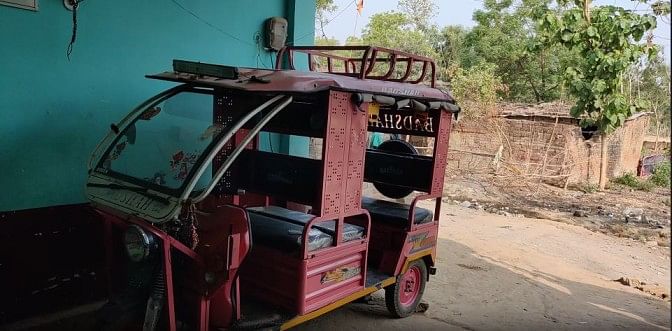
And while they may be working women now, there’s no one to take on the burden of their household chores. Some of the women like Kumari, and another driver Mehga, sometimes have to give up their spot in the auto lines to check on their children and complete household chores. When they return, they have to go to the very back of the queue. Arti’s mother and sister step in to take care of her daughter. “If I go back home in between, my daughter starts crying so I avoid it,” she said.
I saw on Google who King Charles III was. I came to know that even the Prime Minister of India cannot go to Buckingham Palace without an invitation – Arti, pink e-rickshaw driver & Amal Clooney Women’s Empowerment Award winner
Kumari, however, has to return home multiple times every day – to feed her children in the morning, pick them up from school, and then feed them lunch.
“Most of us have children who are under 10 years old. We have to come back home two or three times, and for this, we lose our spot—every time,” she said.
But none of them regret the choice of becoming working women drivers. They’re on the road to independence, and the bumpy ride is a small price to pay. Kumari’s income supports her entire family—her children go to a private school, groceries and so on.
For another pink e-rickshaw driver, Megha, 35, the steady income is a huge relief from the days when she took up daily wage jobs to support her four children after her husband died six years ago. “I felt like I was fighting a battle every day,” she said. Now, three of her children are going to school.
A woman’s job is to take care of the house and do household chores, not drive a rickshaw on the road – Mohammad Asid, auto-rickshaw driver
“I feel more free in this job; I can take care of my children and go to work whenever I want,” added Megha.
The district administration is hoping that more women will come forward and sign up for pink autos after seeing Arti’s success in London. It’s already happening, said Rani.
According to an official from the Bahraich city magistrate, 18 more women showed interest in being part of the pink e-rickshaw scheme. And the process to absorb them has already begun.
“Her journey from Bahraich to London, which made headlines, is an inspiration. Now, more women are coming forward to become part of this pink e-rickshaw programme”, said Monika Rani.
Also read: Haryana’s bought brides are fighting back. ‘Why bring us from outside and insult us?’
A dreamy trip
Arti scrolls through the photos of her London trip on her phone. She’s posing in a make-up room, standing on a busy London street. In the blistering heat, Arti’s six-day trip to London from 18 to 24 May is like a dream.
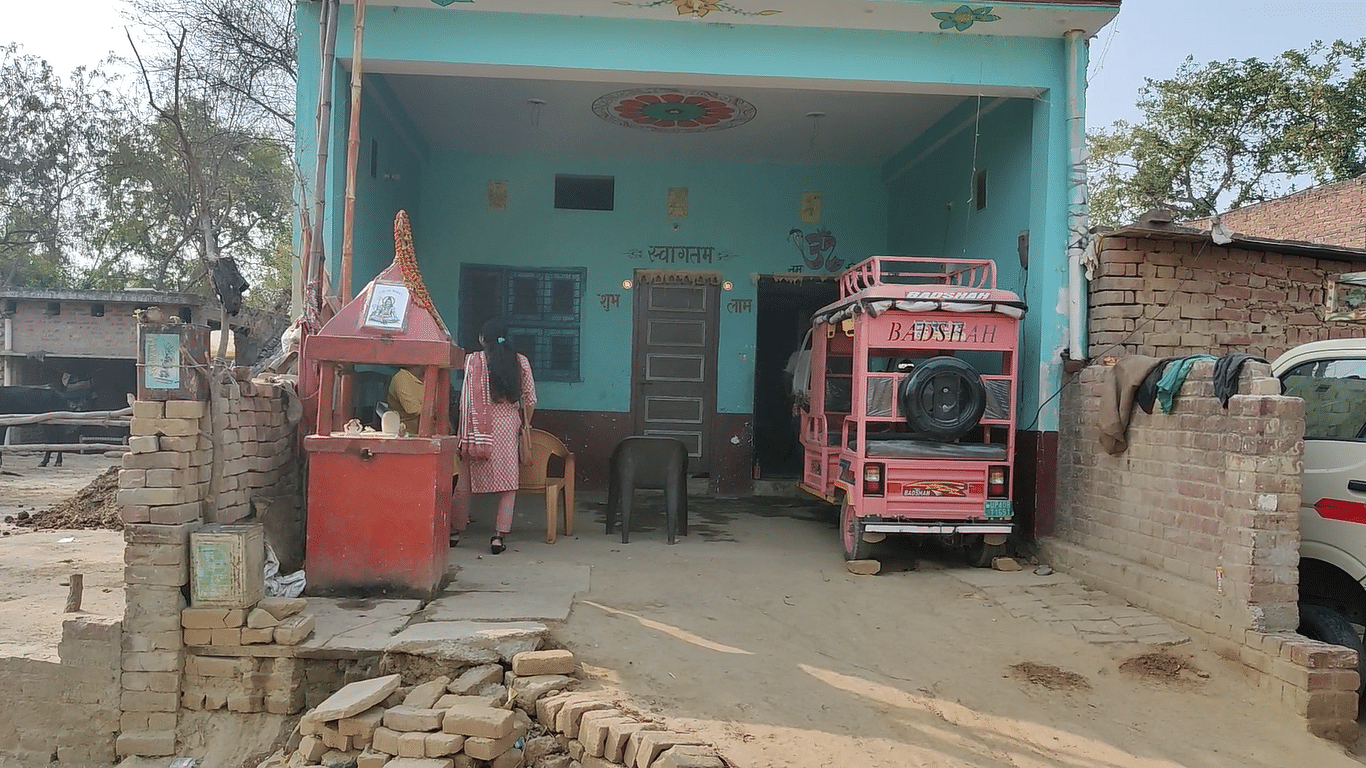
“It’s really difficult for me to believe that I was really in London,” she said. Once her family gave her permission, the entire administration went into overdrive to get the paperwork completed. The AKF team and Bahraich’s district officials helped her gather the required documents and arranged for a passport.
I want to build a home where my daughter and I can live happily – Arti, pink e-rickshaw driver & Amal Clooney Women’s Empowerment Award winner
Tinni Sawhney, CEO of AKF (India), accompanied Arti to the award ceremony and served as her interlocutor to curious guests at Buckingham Palace.
For the reception at Buckingham Palace, Arti chose to wear a maroon sari.
“Two people helped me to get ready for the award ceremony. One man was doing my hair and another was doing my makeup. I had seen something like this only on TV and phone. That day I felt as if I had become a heroine and everyone’s attention was on me,” said Arti.
Meet this year’s @KingsTrustInt, Amal Clooney Women’s Empowerment winner, Arti!
After taking part in AKF’s Project Lehar, Arti has become one of the first female pink e-rickshaw drivers in Uttar Pradesh, India, providing safe transport for other women in her community! pic.twitter.com/dfM4gkOlJ9
— Aga Khan Foundation India (@AKF_India) May 22, 2024
She arrived at Buckingham Palace in a pink e-rickshaw. King Charles III himself escorted her inside. After the award ceremony, Arti visited the London Bridge and immersed herself in the sights and sounds of the city. But it was the first time in her life that she was away from her daughter, and she was uneasy.
“I missed my daughter a lot in London. This achievement also belongs to her. I got some money from the foundation in London, and the first thing I did was buy some chocolates and a pair of footwear for her.”
(Edited by Zoya Bhatti)



